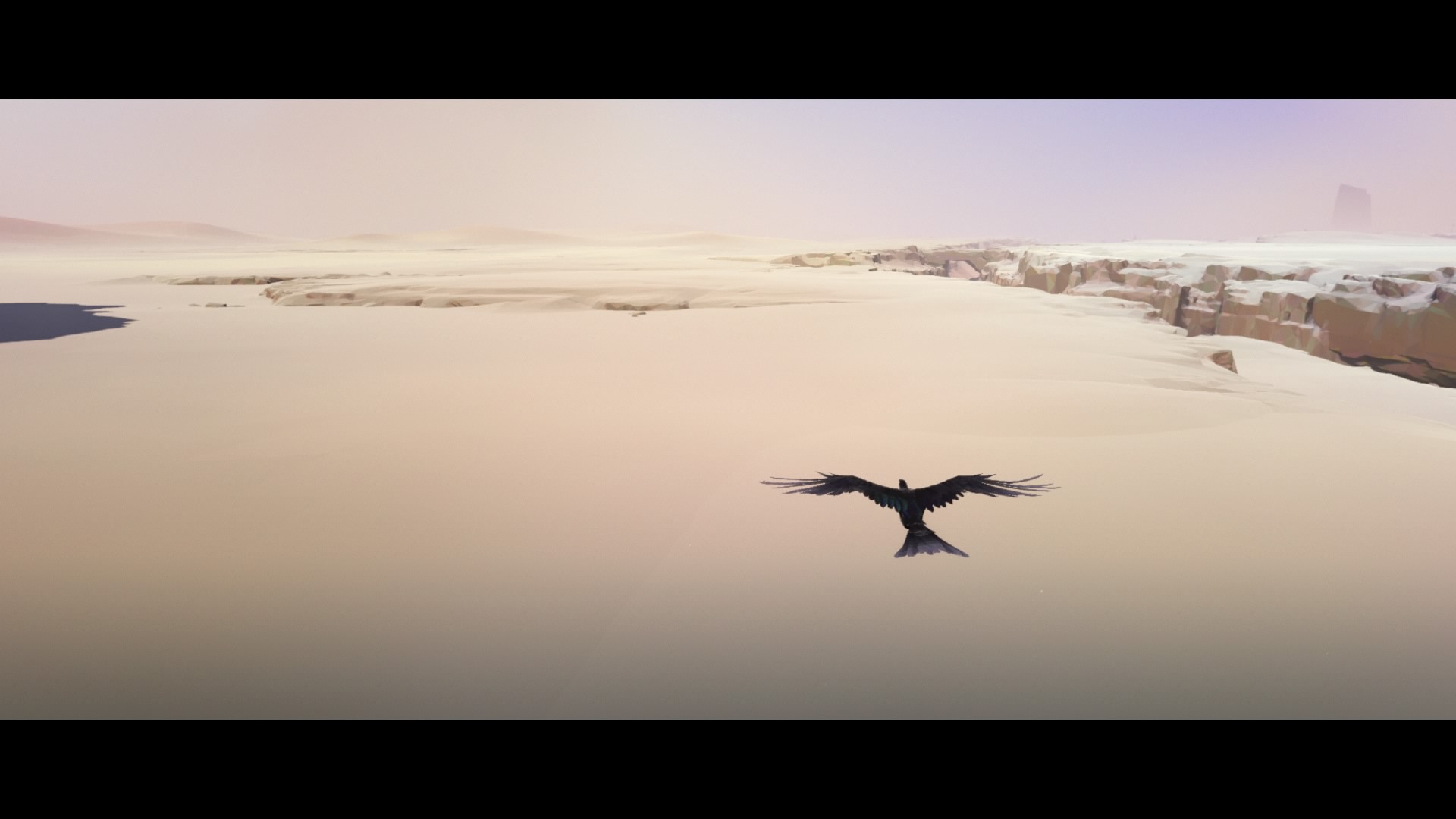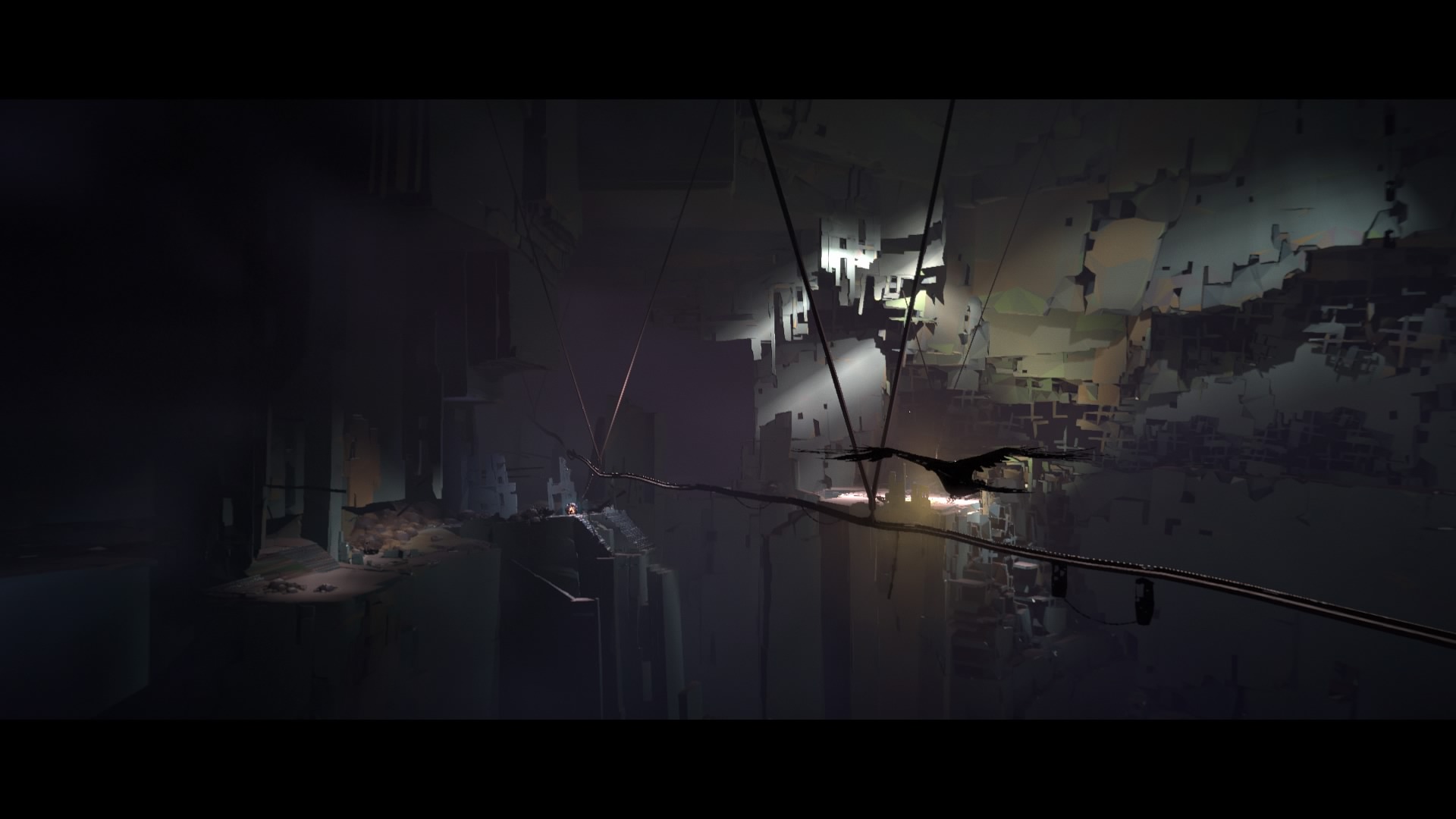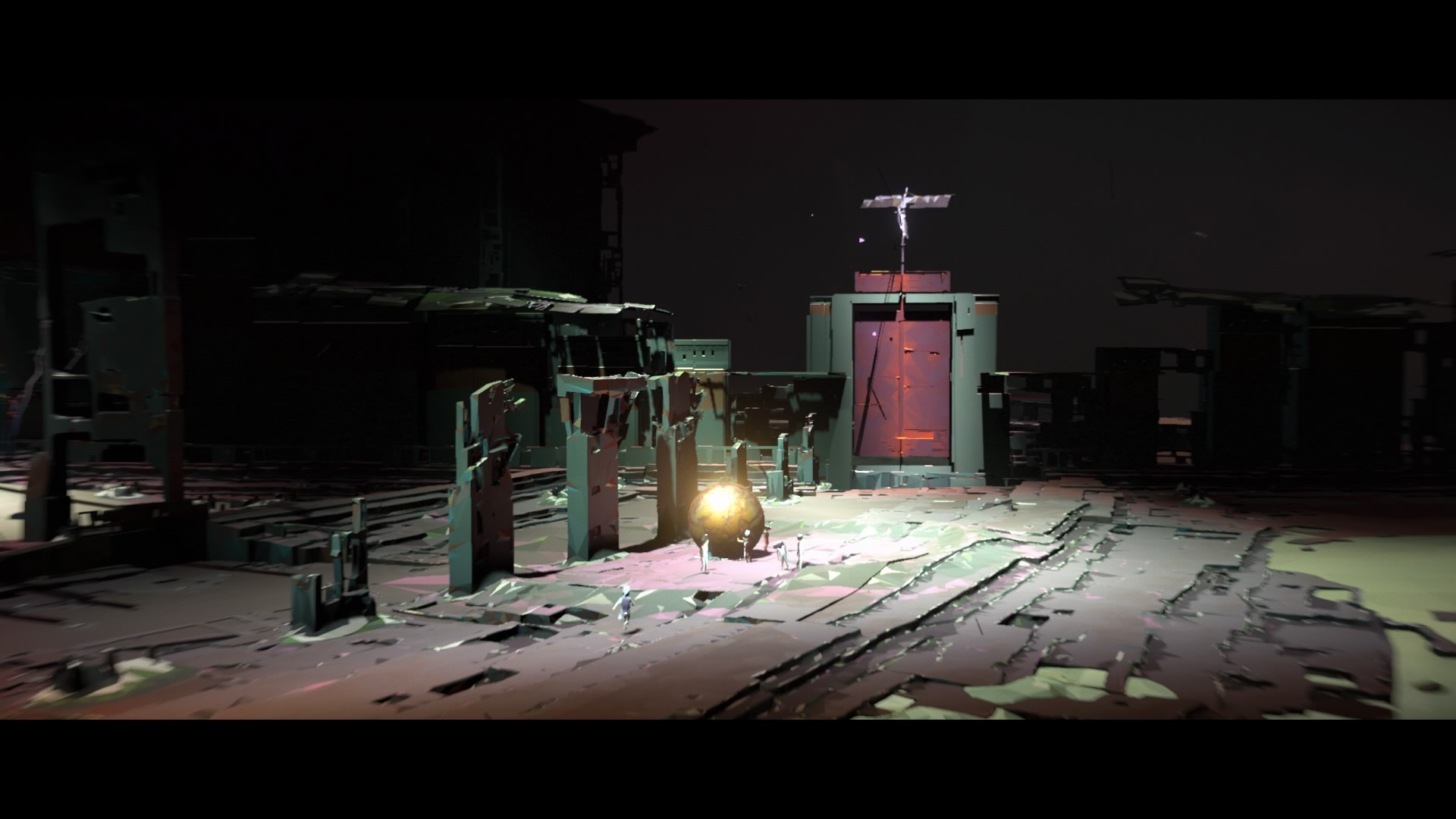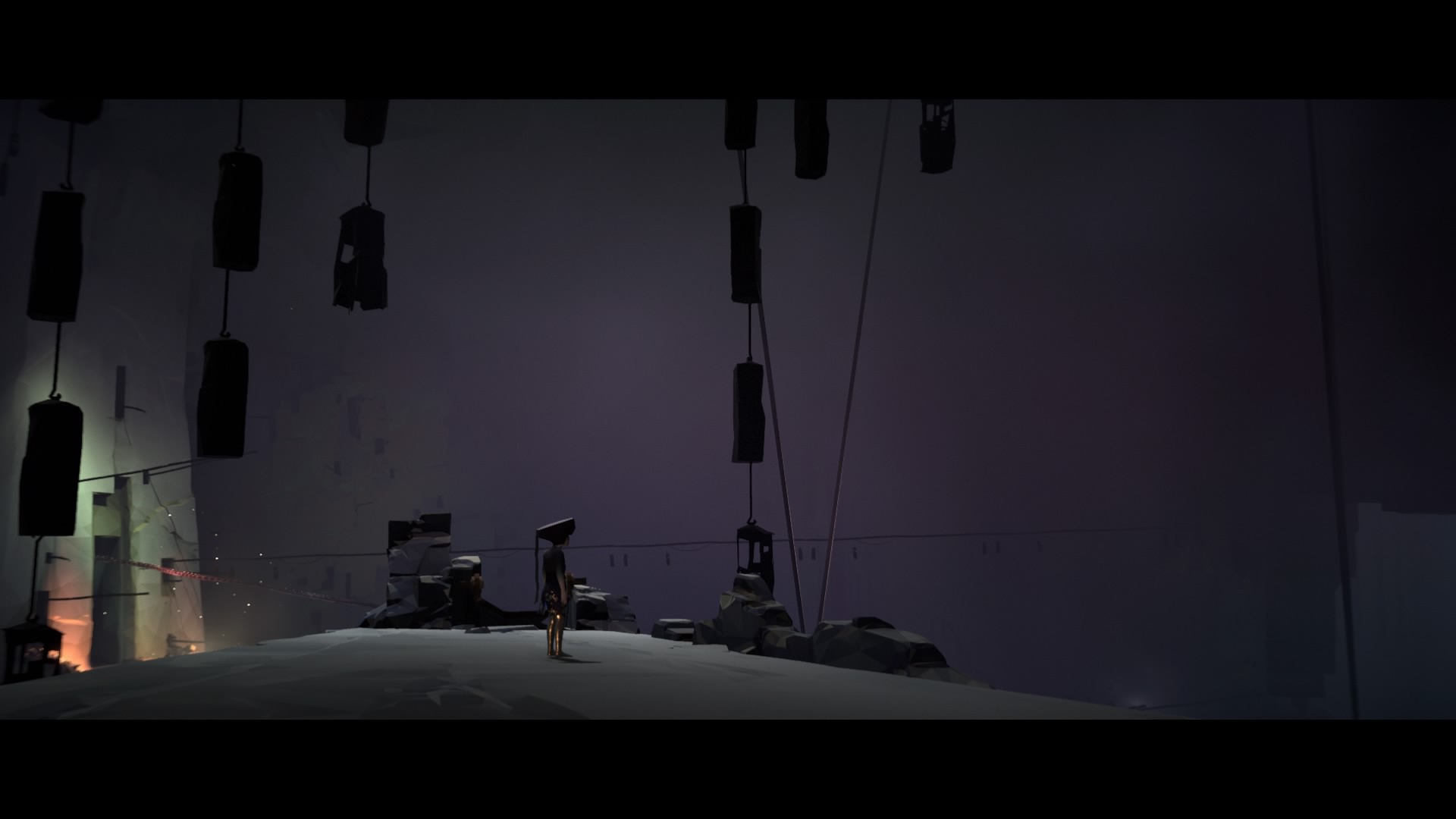Vane Review
A clunky and obtuse flight of fancy.

I could not tell you what Vane is actually about. There’s a disturbing world of polygon structures, dark storms and desolate landscapes. There’s a boy with the ability to sing. There are pulsing balls of light that can morph the environment. You spend much of the game as a crow. I’m all for minimalist storytelling and there are plenty of good examples in gaming. But Vane is abstract to a fault, obtuse to the extreme and a nightmare to play.
The opening, at least, is strong. Beneath gloomy skies the world is torn apart around you as you seek escape, sci-fi synths pulsing at every beat. It’s an evocative start that certainly grabs attention.

From there you’re left to roam the desert as a crow – a calm, bleak juxtaposition with the beginning. Yet this vast expanse filled with promise is an empty void. You’ll fly around aimlessly, wondering where to go, what you can do, and how you interact with the world. Eventually, you’ll stumble upon a way forward but it’s less a moment of wonder and discovery and more relief of something to actually do.
That sums up much of the game. Unlike, say, Journey, which provides a clear goal at all times no matter how abstract the narrative, Vane plops you into a world with no sense of direction and expects you to enjoy yourself without motive. Open world exploration is fun, but only when there are discoveries and a sense of achievement.
There are some occasional moments of beautiful atmosphere, where the music kicks in at a new discovery, where the level geometry unfolds like an Escher painting, where the game revels in quiet contemplation. But between those moments there’s no plot, no characterisation, no hints beyond vague symbolism. There’s not enough narrative here to hold attention, nor goal to strive towards. Your character is just an empty collection of shapes with which there’s no emotional attachment.

Without a strong story, Vane is just a glitchy mess. The way the world shifts and morphs around you is persistently impressive, but the visuals otherwise are stark, polygonal and ugly. Consistently dark environments are confusing to navigate and the framerate stutters exhaustingly. On multiple occasions, the game broke due to the character’s animation freezing or falling through the world, and with a save system that is far less frequent than you’d like, you’ll end up replaying whole chunks. This does not make for a fun game; it’s a lesson in tedium.
So what do you do in this world? Not much. Your lead character can shift between bird and human forms: the former allows you to fly, the latter allows you to carry or push objects or pull a lever. It’s hardly groundbreaking stuff but it wouldn’t be so bad if the purpose was clear. Instead, you’ll spend much of the game fighting awkward controls, clunky movement, and a camera that at best doesn’t quite frame the action and at worst actively fights against the player to obscure the view.

Perhaps the best thing about the game is the score. Moody synths swell and throb, becoming more intense, distorted and industrial as the game goes on. It does, however, feel quite disjointed from the visuals, despite providing much of the atmosphere.
Vane simply doesn’t live up to those games it so achingly apes. It lacks the clearly defined objective and unique aesthetic of Journey; the emotional attachment of The Last Guardian; the intriguing ambiguity of Inside; the charm of Rime. Instead, Vane feels clunky and pretentious, any sense of wonderment outweighed by unnecessary frustration, sluggishness and a lack of clarity.
[Reviewed on PS4]

